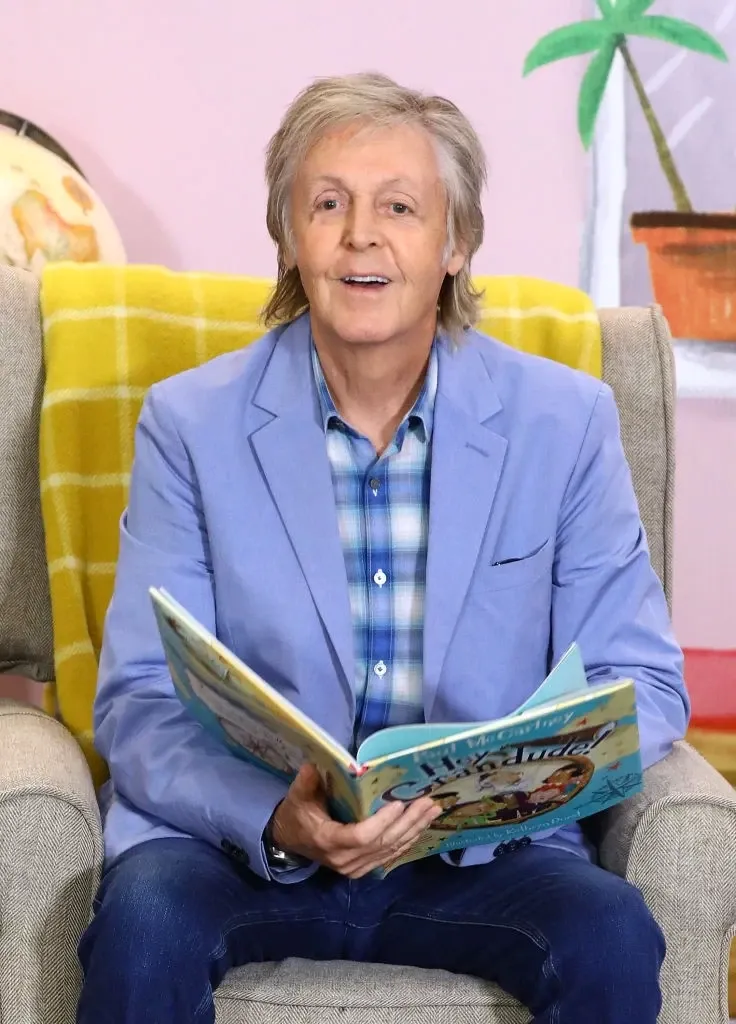- Thursday, April 25, 2024

By: Radhakrishna N S
By Amit Roy
THE world of books heard an exciting and unexpected piece of news last week – that Paul McCartney is to bring out his autobiography, The Lyrics, on November 2.
Those who are knowledgeable about The Beatles say it will reveal India’s deep influence on their music. There is now a pretty solid body of evidence that for The Beatles, India was their most creative period.
When they were in Rishikesh in the Himalayas for several weeks in February, March and April of 1968, they wrote between 23 and 48 songs, 17 of which were included in their White Album, one of their best known.
The Beatles were holed up there with the Maharishi Mahesh Yogi, a ridiculous figure who initially fooled the impressionable youngsters with his talk of Indian philosophy, vegetarian food with no spice, transcendental meditation and the like. But The Beatles, who by 1968, were just about the most recognisable people on the planet, probably felt trapped by their fame and fortune.
McCartney was there with his girlfriend at the time, Jane Asher; John Lennon with Cynthia Powell, his first wife, whom he had married when she had become pregnant; Ringo Starr with Maureen Starkey, his first wife whom he, too, had married when she had seen to it she had fallen pregnant as a way of getting him away from competition; and George Harrison was there with his first wife, Patti(e) Boyd. Another member of the group was Mia Farrow, the American actress who was nursing a broken heart because her marriage to Frank Sinatra had ended.
Harrison, who had by this time met Ravi Shankar and had spent months in Bombay (now Mumbai) learning the sitar from the Indian maestro, wanted to go deeper into Indian spirituality.
It has been said that 1968 was the year that rocked the world. This was the period when anti-American riots protesting against the Vietnam war erupted in capitals across the world, including especially in front of the US embassy in Grosvenor Square in London.
It was a year scarred by the assassination of Martin Luther King and the late President John F Kennedy’s younger brother, Robert. Richard Nixon was elected president that year. In Hollywood, Bullitt, starring Steve McQueen, was a hit film, and Stanley Kubrick’s 2001: A Space Odyssey won an Oscar for Best Special Visual Effects. President Kennedy’s widow, Jacqueline, married the Greek shipping millionaire, Aristotle Onassis. That was the year when Simon and Garfunkel sang “Mrs Robinson” and “Sound of Silence” in The Graduate, starring Dustin Hoffman.
In the ashram, poised on the edge of a cliff overlooking the Ganges, The Beatles were busy making music, in between periods of meditation.
McCartney’s autobiography is not a conventional one, but “the extraordinary story of his life for the first time through the prism of 154 song lyrics”.
It will come out in many capitals throughout the world, but in the UK, it will be published by Allen Lane, a Penguin Random House imprint.
It will be published in two 480-page hardback volumes – A-L and M-Z – with a slipcase, priced at £75.
McCartney, now 78, has always resisted the idea of an autobiography because he felt enough had been written about The Beatles.
But he explained: “More often than I can count, I’ve been asked if I would write an autobiography, but the time has never been right. The one thing I’ve always managed to do, whether at home or on the road, is to write new songs. I know that some people, when they get to a certain age, like to go to a diary to recall day-to-day events from the past, but I have no such notebooks. What I do have are my songs, hundreds of them, which I’ve learned serve much the same purpose. And these songs span my entire life.
“I hope that what I’ve written will show people something about my songs and my life which they haven’t seen before. I’ve tried to say something about how the music happens and what it means to me and I hope what it may mean to others too.”
The work is edited and introduced by the Pulitzer prize-winning Irish poet Paul Muldoon, who is contributing a chapter. “These commentaries are as close to an autobiography as we may ever come,” said Muldoon. “His insights into his own artistic process confirm a notion at which we had but guessed – that Paul McCartney is a major literary figure who draws upon, and extends, the long tradition of poetry in English.”
The publishers said the songs go “from his earliest boyhood compositions through the legendary decade of The Beatles, to Wings and his solo albums to the present. “Arranged alphabetically to provide a kaleidoscopic rather than chronological account, it establishes definitive texts of the songs’ lyrics for the first time and describes the circumstances in which they were written, the people and places that inspired them, and what he thinks of them now. Presented with this is material from McCartney’s personal archive – drafts, letters, photographs – which make this a unique visual record of one of the greatest songwriters of all time.”